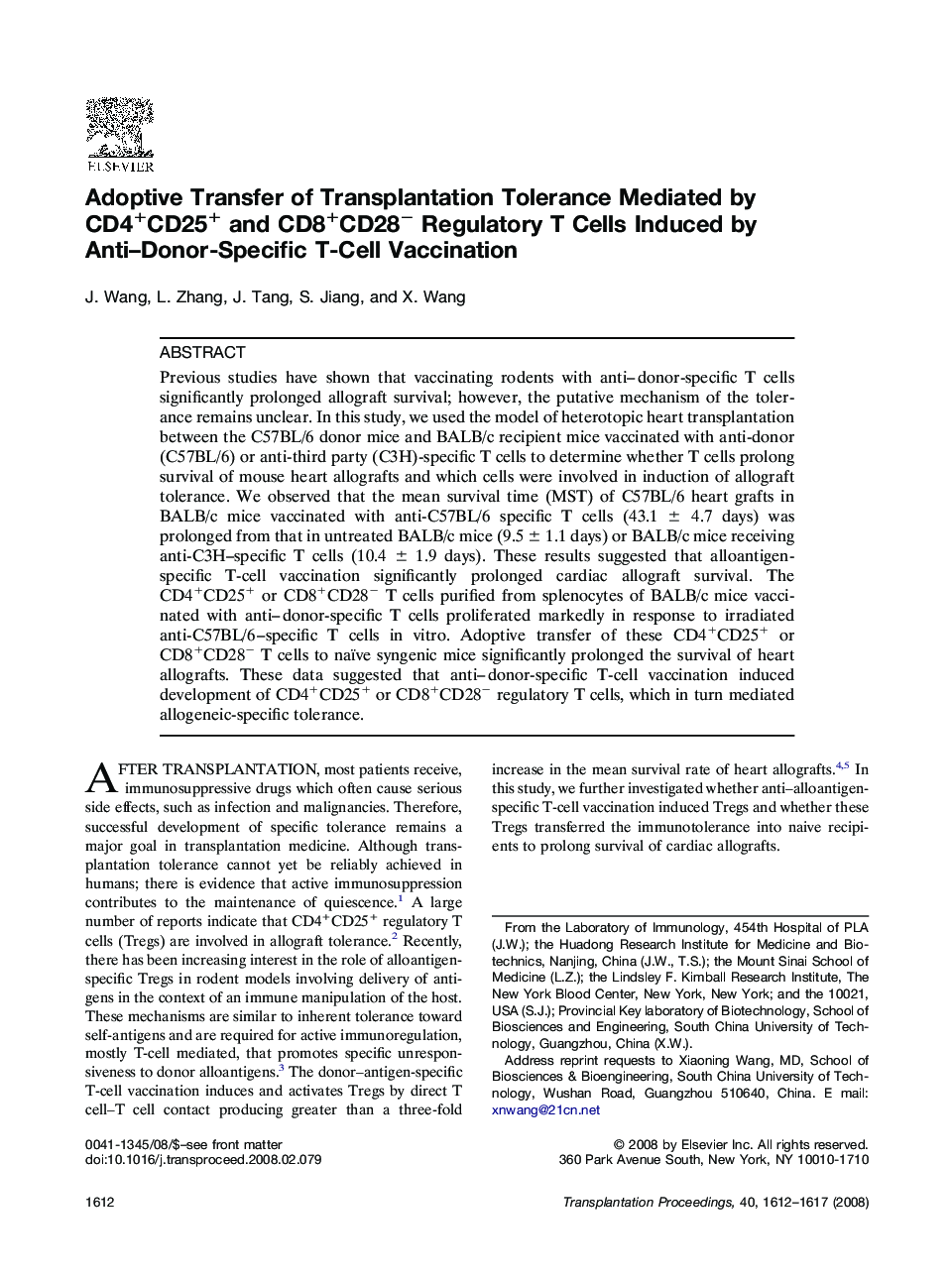| Article ID | Journal | Published Year | Pages | File Type |
|---|---|---|---|---|
| 4258271 | Transplantation Proceedings | 2008 | 6 Pages |
Previous studies have shown that vaccinating rodents with anti–donor-specific T cells significantly prolonged allograft survival; however, the putative mechanism of the tolerance remains unclear. In this study, we used the model of heterotopic heart transplantation between the C57BL/6 donor mice and BALB/c recipient mice vaccinated with anti-donor (C57BL/6) or anti-third party (C3H)-specific T cells to determine whether T cells prolong survival of mouse heart allografts and which cells were involved in induction of allograft tolerance. We observed that the mean survival time (MST) of C57BL/6 heart grafts in BALB/c mice vaccinated with anti-C57BL/6 specific T cells (43.1 ± 4.7 days) was prolonged from that in untreated BALB/c mice (9.5 ± 1.1 days) or BALB/c mice receiving anti-C3H–specific T cells (10.4 ± 1.9 days). These results suggested that alloantigen-specific T-cell vaccination significantly prolonged cardiac allograft survival. The CD4+CD25+ or CD8+CD28− T cells purified from splenocytes of BALB/c mice vaccinated with anti–donor-specific T cells proliferated markedly in response to irradiated anti-C57BL/6–specific T cells in vitro. Adoptive transfer of these CD4+CD25+ or CD8+CD28− T cells to naïve syngenic mice significantly prolonged the survival of heart allografts. These data suggested that anti–donor-specific T-cell vaccination induced development of CD4+CD25+ or CD8+CD28− regulatory T cells, which in turn mediated allogeneic-specific tolerance.
